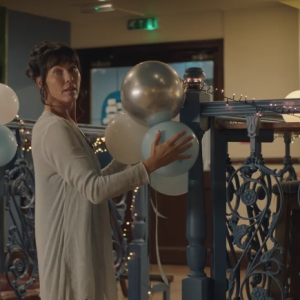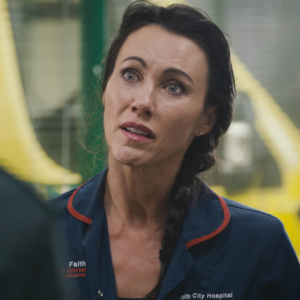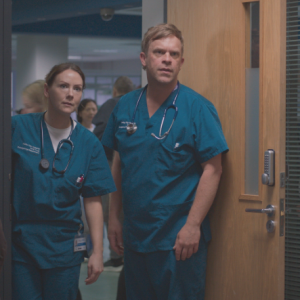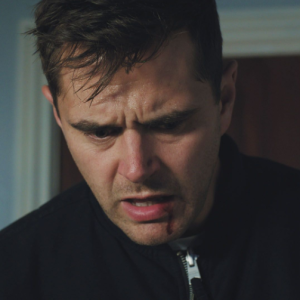Casualty, the BBC’s longest-running medical drama, stands on the precipice of change as whispers grow louder about a radical reinvention that could redefine its legacy and reshape its presence on British television. First airing in 1986, the series has weathered the storms of shifting programming trends, budgetary pressures, and evolving audience habits, cementing itself as a primetime Saturday night staple and a cultural institution. Yet with its 40th anniversary looming in 2026, the question no longer seems to be whether Casualty can survive in its current format, but whether it should. The surprise Christmas Day special on December 21 — a departure from its traditional festive hiatus — became both a gift to fans and, according to industry experts, a litmus test for what the BBC might attempt next. Was it a one-off indulgence, or the first step toward a bold new future where Casualty abandons its weekly structure in favor of fewer, more cinematic events? For a show that has defined the Saturday night schedule for nearly four decades, the stakes could not be higher.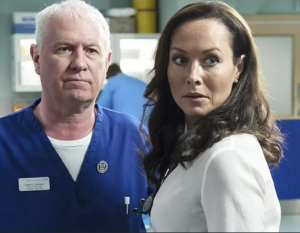
Brand and culture expert Rochelle White of the Rochelle White Agency has voiced what many within the industry are now speculating: the Christmas episode may not have been about nostalgia at all, but a carefully calculated experiment. “I feel that this could be a way for the BBC to see if it is a show worth keeping and investing in,” White explained, pointing to the mounting production costs of a weekly medical drama. “I’m aware that they have taken breaks in the past due to increasing costs. However, this could be a test to see how popular it is.” Her analysis shines a harsh light on the reality of Casualty’s production scale. Sets must replicate the frenetic authenticity of a real hospital, a large cast must be supported with salaries and contracts, and every episode must deliver the heightened realism that fans have come to expect. Against this backdrop, the BBC faces a decision: continue pouring resources into a weekly structure, or pivot toward a model of fewer, higher-budget episodes designed for impact. The Christmas experiment may well have been the network dipping its toe into those uncertain waters.
The alternative being floated takes its cue from ITV’s Midsomer Murders, a series that airs less frequently but delivers longer, filmic episodes designed to feel like television events. Rochelle White speculated that Casualty could adopt a similar strategy, transforming into a series of ninety-minute specials that air once or twice a month. These episodes could be marketed as “event television,” each tightly plotted and thematically focused, appealing not only to loyal viewers but also to the elusive “binge-watchers” the BBC so desperately seeks to engage. “As they currently break it up into a mini series, they could get really creative with the storytelling and create episodes for what is now known as the ‘Binge watcher,’” White explained. “It could help with the costs of production, secure longevity and attract younger viewers.” Such a move would fundamentally change Casualty’s DNA, shifting away from the rhythm of weekly cliffhangers to more immersive, self-contained stories that unfold with cinematic sweep. While such a shift might horrify purists, it may also breathe new life into a format that risks being overtaken by the very streaming platforms it now competes against.
The specter of Holby City and Doctors looms large over any conversation about Casualty’s future. Holby City, launched in 1999 as a direct spin-off, thrived for twenty-three years before the BBC axed it in 2022, citing the need to “better reflect and represent all parts of the UK.” Meanwhile, Doctors, a beloved daytime drama with a fiercely loyal fanbase, was cancelled in 2024 after twenty-seven years on air, with the BBC citing both costs and shifting audience patterns. These decisions sent shockwaves through fandoms, reminding everyone that even long-standing institutions are not immune from the axe. Casualty, as the flagship of BBC medical drama, has so far withstood the storm, but survival now depends on evolution. The network has already experimented by structuring episodes into shorter seasonal arcs, essentially boxsets built for iPlayer consumption, such as the upcoming eleven-part mini-series Off Duty, launching December 28 and promising explosive storylines as Jodie Whyte’s reckless actions ripple across Stevie Nash’s life. This approach shows a willingness to play with format, teasing the possibility that the show is preparing its audience for an even bigger structural transformation.
At its heart, Casualty finds itself caught between two identities: the cherished weekly ritual that has guided millions of viewers through Saturday nights for almost forty years, and the potential phoenix rising from its own reinvention, streamlined for modern audiences with new rhythms of storytelling. What cannot be denied is the show’s cultural footprint; it is woven into the fabric of British television history, its stories of heartbreak and heroism shaping the imaginations of generations. Yet television is a living organism, and survival requires adaptation. Will Casualty embrace the event-television model, reinventing itself with fewer but grander instalments? Will it lean further into shorter seasonal arcs designed to dominate iPlayer and streaming culture? Or will it, like Holby City and Doctors, become another casualty of the BBC’s ruthless programming shifts? For now, fans cling to the reassurance that the show remains on air, but the unease is palpable. The wards of Holby may continue to echo with the cries of patients and the footsteps of doctors and paramedics, but the format in which we hear those sounds may soon be unrecognisable. One thing is certain: as Casualty approaches its landmark 40th anniversary, the next two years will determine not just its future, but its place in the pantheon of British television.
